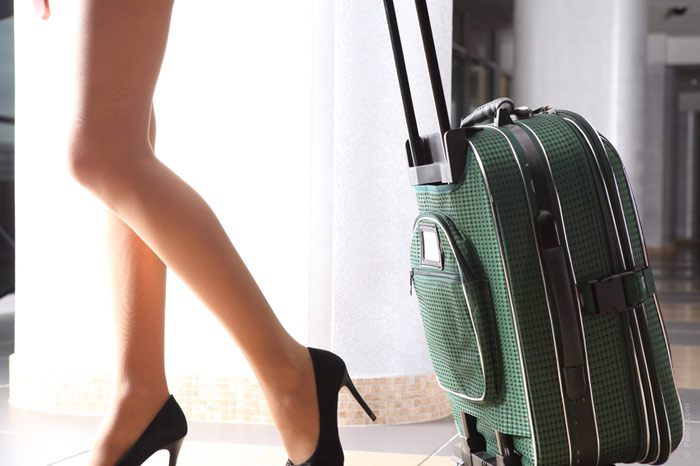You are sure to know a lot of people who tie themselves up in knots trying to round off all their affairs for the coming vacation. Chances are you’re the kind yourself. True, it’s hard to avoid this sort of situation. But does this pre-leave rush mean that now you risk to have health problems as soon as you wind down?

The Dutch psychologist Ad Vingerhoets suggested an apt name for the phenomenon – leisure sickness – and though the name hasn’t been accepted universally yet, the illness that strikes out of the blue as soon as you take a break from your work draws more and more medical attention. How much is exactly known about it?
No serious study of the phenomenon is in evidence yet apart from the psychologist’s own study. Vingerhoets questioned about 2,000 people if they fell ill regularly during vacations and if they thought they were ill more often on vacations than in their working time. More than 3% said they were. Now, although the study was based on people’s personal opinions solely, it doesn’t seem to be a natural state of affairs. So many people are apt to overwork before a vacation and build up stress, and, on the other hand, a vacation marred by an illness is something that retains in the memory and provides food for conversation. Our successful vacations are more likely to slip by and stay forgotten.
So, there are cases where we can definitely nail down the leisure sickness phenomenon. Can it be explained? The people polled for the study blame the radical change in their lifestyle when they halted working and began to rest. Well, it could be true.
The first hypothesis says that a rapid transition from strain to relaxation can make people susceptible to infections. While we are working, we get help from stress hormones and adrenaline that not only provide us with energy, but also strengthen the immune system and enable us to resist infections. On the other hands, the immune system gets weakened by cortisol, another stress assistant. It sounds tenable that when we relax, the immune system also settles down to take a rest.
The second idea says that people became ill some time before the vacation, but while work was in high gear, the strain itself helped to keep the illness at bay and prevent people from noticing they are not feeling quite well. The ensuing relaxation brings the feelings home, and we have to admit we are ill.
Psychologists also discovered that we rate our state of health in correlation to what we are currently doing. There’s a study showing that in the state of low activity people are apt to rate their symptoms as worse.
A film was broken up into 30-second pieces, and a group of people rated the episodes as more or less interesting (if at all). Then the film was shown to another group of people, and the researcher monitored coughs from the audience. Predictably, the interesting scenes made people forget about their throats, while during the boring pieces they coughed much (a sure indication to any stage performer, that!). Therefore, when deep in work you are better fitted to disregard the lighter onsets of symptoms.
An alternative version states that we must blame the vacation (and not work) which took us off to entirely different surroundings. It’s not the pre-leave rush but the journey that is exhaustive, especially if you choose to go by plane. A longer flight increases your chances of catching a virus. If we consider the statistics according to which the average American has about 5 colds in two years, an adult’s chance of getting a cold on a flight ought to come to 1%. Yet a survey of passengers taking a flight from San Francisco Bay to Denver shows a 20% rate of those catching a cold. It can’t be a regular yearly rate, because this way you should be getting about 60 colds per year and would be suffering from a cold every blessed week!
The high rate of virus disseminating is generally put down to recycling air, but the researchers believe it has nothing to do with developing colds. Far more likely reasons are the enclosed space that gets you nearer to somebody else’s germs, and the humid atmosphere. The prevalent idea is that the typical dry air of planes results in thickening the nose mucus that catches viruses and bacteria so it cannot find its way to the stomach and fight viruses.
There are also psychological hypotheses like falling ill to protest against a vacation you didn’t really want. But so far there hasn’t been a sufficient number of studies to determine which explanation should be preferred to the others – or if they all combine to result in an illness.
Still, it’s not a frequent occurrence yet. What’s more, the longer we live, the better the immune system is able to generate antibodies, and we can rely on a stronger resistance to colds – irrespective of the rest-or-work factor. There are boons in getting on, after all.










